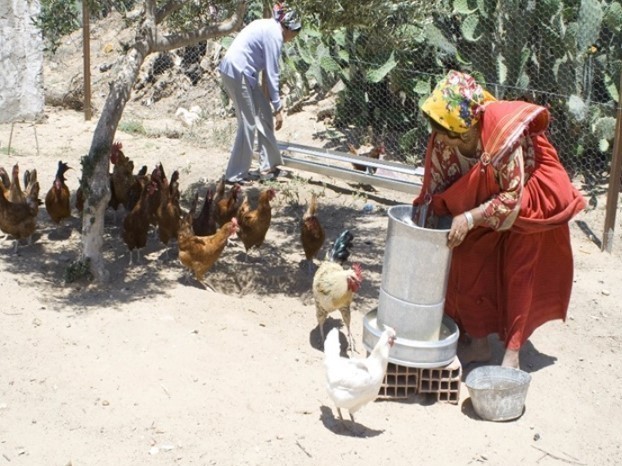The poultry sector in Tunisia has undergone a significant transformation over the years, mirroring developments seen in other countries and evolving from traditional family farming to a well-established industry. This sector currently plays a vital role in meeting the country’s increasing meat demand accounting for approximately 50% of the total national requirement. In 2023, broiler meat production reached 146,387 tons, with an average annual growth rate of +4.15% since 1985while egg production amounted to 1,844,617 eggs, growing at an average annual rate of +2.16% (source).
Paving the way for Industrial Free-Range Chicken Production
Over the past two decades, Tunisia has responded to this demand witnessing the development of industrial breeding units producing free-range chicken. These units primarily utilize selected strains of red label or certified chicken imported from France. Although the total quantity of free-range chickens produced annually is less than 1,000 tons, distribution is efficiently managed through franchised hypermarkets and select supermarkets (source). This production follows the demand for increasingly controlled and quality foods in the country, and represents an interesting opportunity for the sector to develop.
Women in traditional Poultry Farming
Despite the drive towards industrialization, traditional or backyard poultry farming has long been part of rural Tunisian life, although statistical data on this sector are scarce. The latest available figures from 2017 indicate the presence of 1,701 thousand units of traditional egg layers and 1,869 thousand units of traditional meat-type chicken (source). What is interesting is that women in rural areas are still actively engaged in this form of farming, contributing to household consumption, generating supplemental income, and aiding in pest control. Support from institutions championing rural women has further fueled these income-generating activities, resulting in an impressive annual growth rate of approximately +7 %, outpacing that of the industrial sector (source).
Challeges of traditional farming
But traditional farming faces challenges stemming from its decentralized and unstructured nature, which is hindering its full potential. While traditional farming boasts a higher growth rate compared to the industrial sector, which is estimated by GIPAC to advance only at +5% in a prospective study by the FAO for 2025, it struggles with regulatory ambiguity and lacks specific guidelines for “traditional” or “local” free-range poultry farming. Additionally, technical, health, and economic constraints has to be considered as slackening factors, including the continuous rise in the commercial animal feed prices. A preliminary study on local chicken breeding systems in four governorates of the eastern center of Tunisia has reported that in the lack of funding the main herd’s feeds are based on cereal grains, commercial concentrates and kitchen waste. Most common diseases are coccidiosis (83%), smallpox (50%) and respiratory diseases (28%), further weakening the herd.
The SUSTAvianFEED proposal
In response to these challenges, the SUSTAvianFEED project introduces innovative poultry farming systems that prioritize sustainable animal feeding. Implemented in Tunisia by ISA-CM and the Rayhana association, this project focuses on supporting environmentally friendly food chains to foster local economies and address social issues. One of the key objectives of the project is to promote alternative feeds using local protein sources to reduce costs and enhance sustainability: a sustainable nutritional formula in which insects will play a key role and which will lead to an innovative poultry farming approach.
In conclusion, the evolution of Tunisia’s poultry sector reflects broader global trends towards sustainability and innovation. By embracing initiatives like SUSTAvianFEED, Tunisia aims to create a more resilient and environmentally conscious poultry industry, ensuring a sustainable food supply for generations to come.




Leave a Reply
You must be logged in to post a comment.